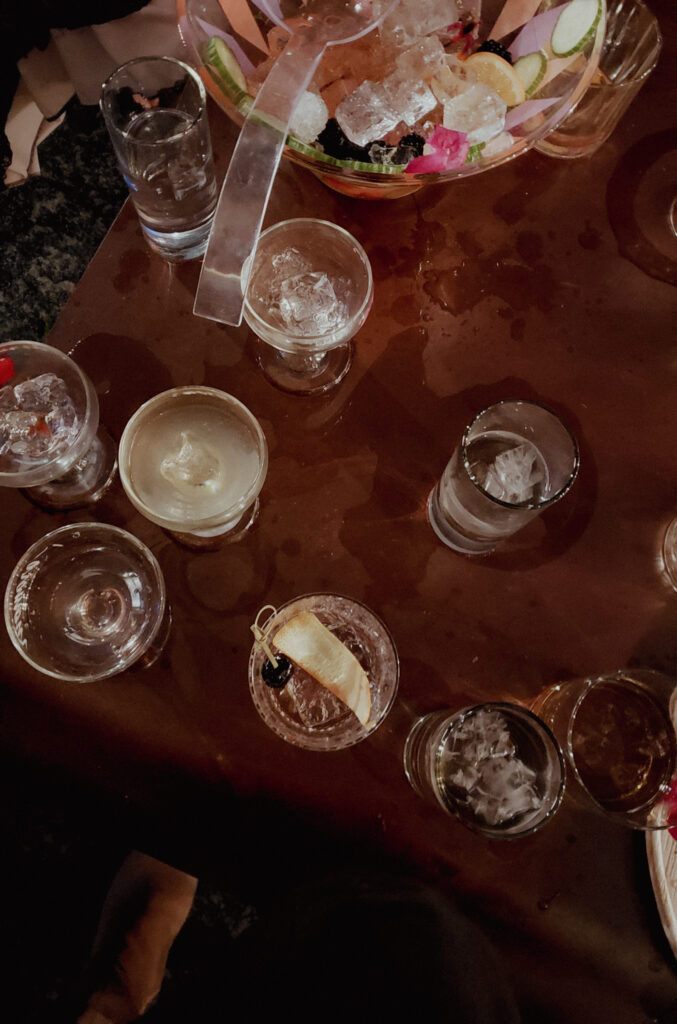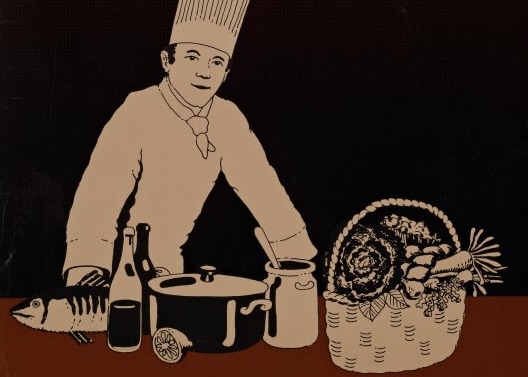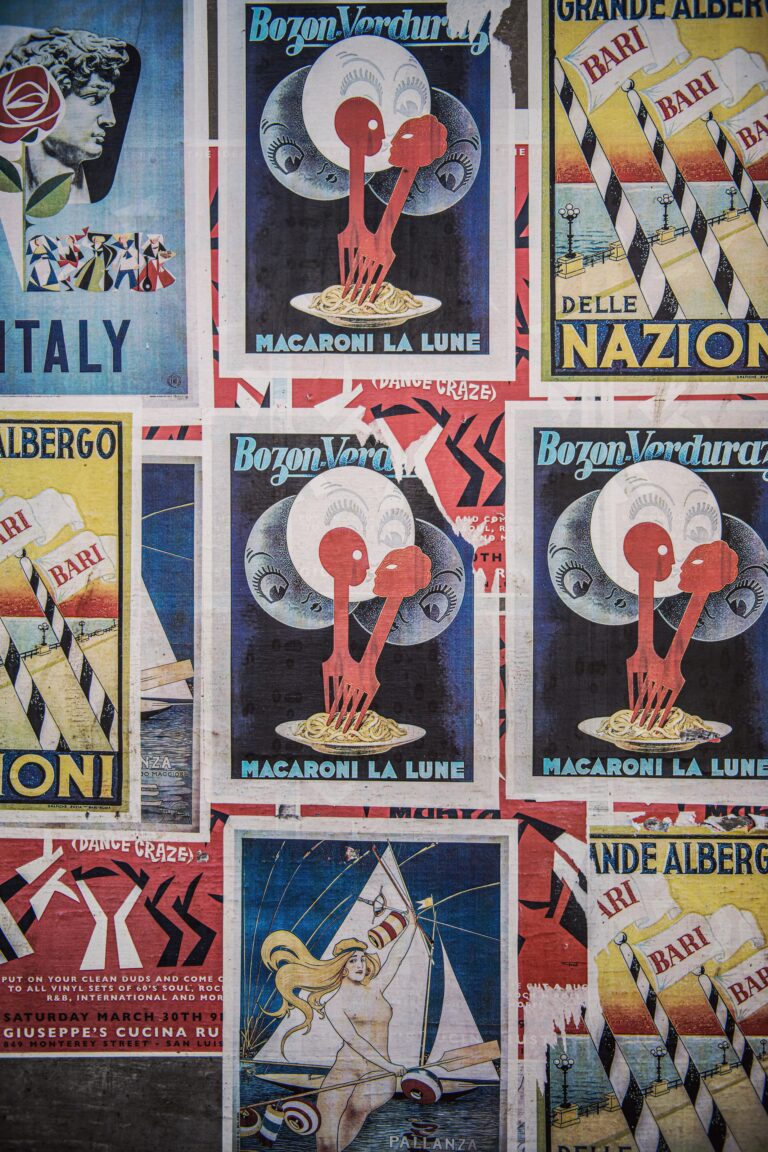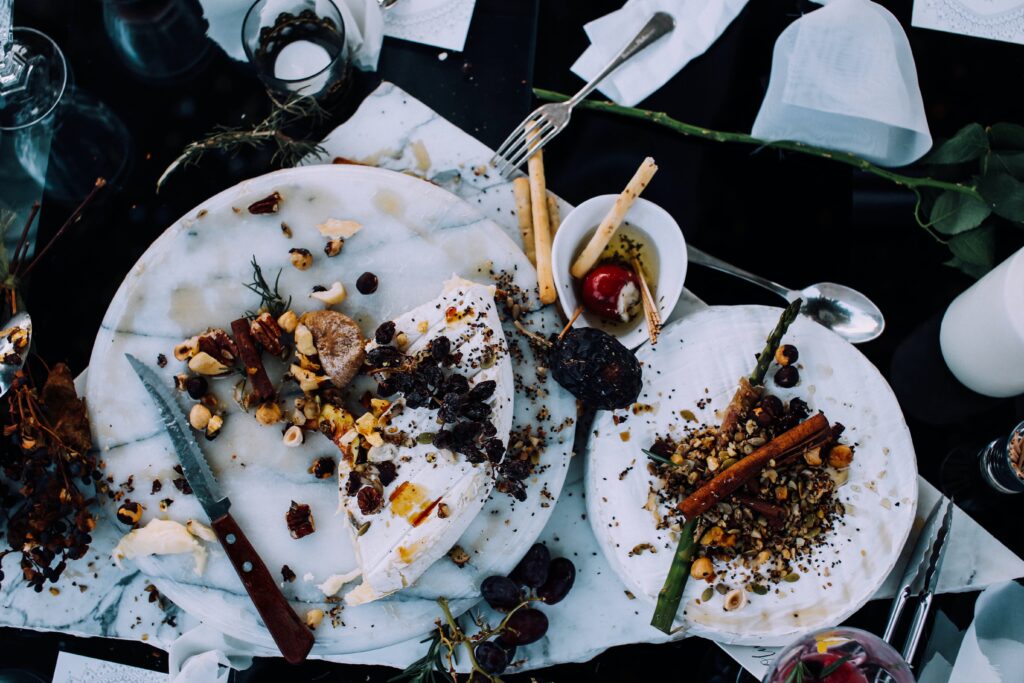On October 21st of 1962, Hurley Brennan got behind the wheel of his Chevy Apache heading to Pocatello on errands. When he could no longer see his farm in the rearview he flipped on the radio. It was Hurley’s secret pleasure to tune into pop music shows broadcasting out of Idaho Falls or Salt Lake City when he was alone. And alone he was on that day, in that truck, when he first heard Dee Dee Sharp describing in verse a dance named after the foodstuff that was the primary source of his financial and dietary sustenance. The bouncy pop diddy was instantly familiar to the farmer, as it shared the same melody, 4/4 drum pattern, and high soprano backing vocals as The Marvelettes 1961 hit “Please Mr. Postman.” But it was the theme of the song — the potatoes — that drew him in.
In church, Hurley had been told repeatedly that Rhythm and Blues and Rock and Roll were the devil’s music, but he rationalized his indulgence in the dubious entertainment with the excuse that he needed to “know the enemy’s tactics,” as Bishop Taylor had often preached.
It seemed an odd coincidence to Hurley that Dee Dee’s “Mashed Potato Time” was also playing on the RCA color televisions in Block’s display window as he walked toward the entrance. Hurley looked both ways, lest there be any fellow parishioners around, before ogling the scantily clad women doing the Mashed Potato dance on American Bandstand.
After buying needed items at Block’s and running a few more errands around town Hurley made his way home — purposefully leaving the radio off, as he always did on return trips — hoping to offset his earlier intemperance by leaving room for the Lord to speak, should He desire to do so. Though he waited patiently during the hour-long voyage, all Hurley could hear was Dee Dee Sharp’s voice as though it were still crackling through the truck’s single speaker.
It was a joy to pull up to the farm and see his two daughters playing in the yard while his wife, Margaret, hung clothes on a line between their house and a river birch tree at the close of a sunny afternoon.
Hurley stepped out of the truck and gathered the boxes and bags from Block’s. Debbie toddled toward him, flashing a smile devoid of front teeth.
“What’d ya get me Papa?”
“Something to keep you warm this winter.”
“Is it pwetty?”
“Not too pretty.”
Debbie made a pouty face and went back to playing with her older sister, Clara.
Hurley looked out at his thirty-seven-acre potato farm, relieved for the end of harvest season and happy for the extra income his nine new acres brought in.
As he walked towards the front door with an armload of purchases, Hurley stopped to watch his daughters at play. Clara had a large potato dressed in raggedy doll clothes that danced with Debbie’s Barbie.
“Been digging your own harvest?” Hurley asked.
Clara smiled and held up her dolly. “Look at my tater lady, Papa,” she said proudly.
It happened now and again that potatoes grew with fissures — deformed and knobby — with something resembling a body part. They might look as though they had a head, or even a couple of arms or legs. Some even looked like they had faces. But the potato Clara held up did not only have a head and four stubby appendages — it had something else, too.
Hurley set down the packages and took the curious doll in his meaty right hand. He was taken aback by just how human the potato looked — and not just how human, but how feminine.
At first Hurley thought the two bumps under the doll’s blouse must have been added by Clara, who was herself beginning to form bumps on her chest, but upon lifting the homemade blouse Hurley was shocked to see the two round breast shapes were an inseparable part of the peculiar potato.
“Stop Papa, we’re pwaying wif her,” Debbie cried as Hurley pulled off the doll’s clothes and moved swiftly toward the house.
“No, Papa! Bring her back! Please…” Clara called.
Staring at the deformed tuber, Hurley walked trancelike through the doorway and collapsed onto the sofa. He blinked his eyes, shook his head, and then looked again. What he saw when he took off the doll’s skirt was even stranger and more improbable than everything else about the vegetable. For there, between the humanlike potato’s stubby legs, were detailed outlines of a labia. And when Hurley squinted and looked even closer, he also saw the legendary “little man in the canoe,” as his high school classmates had called the pleasure button that sat atop a woman’s private parts. Invasive images of Hurley’s own lustful teenage deeds began to take over his mind, adding even more confusion to the moment.
There was only one conclusion he could come to: the perverse potato was sent by Satan himself.
Seized with a sudden dread, Hurley moved swiftly to the kitchen, dropped the weird root crop onto a cutting board, and grabbed a butcher knife.
The girls came in crying just then, shivering as they watched their father, with red face and twisted brow, chopping their dolly into pieces.
“Where’d you girls find this?” Hurley yelled, staring nervously at the decimated potato as though its parts might grow back together any moment. When they didn’t respond, Hurley grabbed his crying girls by the arms and made them walk him to the place — one of the new fields far in back of the house — where they had discovered the potato lady.
The hole they showed their father was a couple feet in diameter and a few feet deep. It seemed to Hurley too large a pit to have been dug by his daughters, but before he could ask if it was their doing they had run away.
Over the next hours Hurley dug the hole even deeper and wider, occasionally finding other deformed potatoes. They weren’t human in shape, but they weren’t the normal kind either. Some were quite large and were buried at unusual depths. He tossed each one over his shoulder and kept digging.
“I’ll dig clear to Satan’s cupboard if I haffta!” Hurley exclaimed.
As the sun was going down Margaret rang the dinner bell hanging over the front porch repeatedly until it nearly broke out of its yoke. The girls, who’d been in hiding since the destruction of their dolly, eventually answered the call and pointed their dirty fingers in the direction of the field where they’d left Hurley. Margaret marched along in that direction until she saw potatoes being flung out of the ground.
“Supper’s on, Papa. Best come while it’s warm,” Margaret hollered toward the hole without question or concern for Hurley’s doings.
When he heard the deadened sound of his wife’s words hitting the dirt, Hurley looked up at the darkening sky and waited again for the Lord to speak. After what he thought to have been an ample amount of time with no words coming from above, Hurley scrambled out of the pit, suddenly afraid he might get sucked down deeper at any moment.
The family was sitting quietly at the table when Hurley arrived. His daughters stared at the floor, breathing uneasily. Margaret joined hands with them when their father took his seat. Hurley then reached his hands out as well. The girls’ sweaty palms and nervous fingers felt as though they would jump or slip right out of Hurley’s tight grip, but he paid them no mind as he began the meal prayer.
“Dear Lord, our Father, we thank you for the bounty you have given us, and we ask you to forgive our indulgences, to watch over and keep us in your grace, to bless this house and this family…”
Margaret, thinking Hurley was about at the “amen” part, began to let go of the girls’ hands, but when she looked up and saw her husband’s closed, twitching eyes, she realized he was meaning to say more. And more he did say.
“Father… please don’t forsake us! If these are the last days, show us how to follow the path to your Kingdom.”
Hurley looked up then, as if from a bad dream, and stared blankly ahead. Margaret waited a moment and then began placing portions of meatloaf, mashed potatoes, and green beans on the plates. Everyone seemed hesitant to eat. Margaret took a first bite. The girls joined after.
“Did you stop at the bank, Hurl?” Margaret asked after a while.
“Yes,” Hurley answered.
“What’d they say ‘bout the car loan?”
“We have plenty collateral.”
“Can we go to town next weekend?”
Hurley nodded, took a deep breath, and ate a few bites from the plate in front of him.
When dinner was over Hurley excused himself and went for a walk under the waning crescent moon. He thought about the many visions of an imminent apocalypse he’d had as a boy.
“That’s when people still believed, Lord,” Hurley said to the sky.
In those days the elders listened to young Hurley’s religious fervor with interest and even encouraged him to testify during weekly service. But as Hurley came of age his visions became increasingly strange, and the older, true-believing elders who’d once given their attention to the unusual boy were either no longer around or no longer willing to share in Hurley’s enthusiasm for the end times.
As Hurley paced uneasily through the empty fields, he recalled his last vision — “the incident,” as his parents and elders had called it — remembering how clear it all was, as if someone had suddenly lifted a curtain or wiped smudge off a dirty window.
That Halloween day in 1952, as Hurley looked around the gymnasium at the other high school seniors dressed as vampires, Frankensteins, ghosts, and zombies, he was overcome by the most harrowing and realistic apocalyptic vision he’d ever had.
The first thing Hurley noticed was the odd behavior. Everyone started making snide, nasty comments to each other. It was as if the worst trait, the most negative part of each person’s personality, had become exaggerated and more pronounced. Shortly after that Hurley saw his classmates’ facial features were changing as well. It was almost funny at first to see how caricature-like they all looked. But then the agitation came…
It was the eerie music that seemed to activate them. It kept slowing down and speeding up until it became hard to tell what the song was anymore. Eventually the music found a steady pace — a slow clopping rhythm in a minor key with the mood of a funeral dirge. It sounded as if it were from a distant land or an ancient time. The costumed kids moved around to it in an out-of-sync fashion — twitching and contorting. The more frenzied they became the more their bodies began to change as well.
It seemed to Hurley they were waiting for a signal that might come any moment. Something to let them know they could stop pretending to be people.
It was only a matter of minutes until the transformation was complete. Hurley suddenly saw himself surrounded by gnashing, snarling, demons — writhing around the room in circles, ready to wreak havoc on the innocent and devour human flesh.
As he bounded out of the class and away from the school, Hurley looked up and saw a huge explosion in the sky. He ran clear to Elder Baumgarten’s house and demanded the elder call the Bishop. Neither the Bishop nor the Elder could calm the hysterical boy. They listened to his rantings with measured patience and finally told him he’d been daydreaming. They said if it had truly been a prophetic vision he would’ve seen signs and symbols, the appearance of ancient figures, angels revealing details of the Judgement, the righteous vindicated and the opposition vanquished, and, most importantly, he would’ve seen Jesus making his triumphant return.
It wasn’t until two years later that news of “Operation Ivy,” the first testing of a hydrogen bomb by the U.S., was acknowledged to have been conducted on Nov 1st, 1952 — the day after Hurley’s vision. The 82-ton bomb detonated that day was said to have been 500 times more powerful than the deadly atomic bomb dropped on Nagasaki. Its blast vaporized Elugelab Island in the Western Pacific where it was dropped, leaving in its place a fifteen-story crater more than a mile in diameter. Though Hurley initially thought himself vindicated by the news, no one in the community seemed to remember or care about “the incident.” At that point Hurley had turned almost completely inward, realizing he had no one to rely on other than God Himself.
When Hurley grew too tired to pace the fields any longer he returned home, climbed into bed with Margaret, and stared at the ceiling, wondering if he should tell her about the potato.
Throughout the night, dreams came to Hurley as if broadcast through an RCA color television. He saw himself, his family, and a group of Brown people dressed in ancient robes dancing together on American Bandstand. They did the Mashed Potato dance to a performance by Dee Dee Sharp, while outside the TV studio, nuclear blasts thundered, creating smoky haloes.
Hurley awoke excitedly in the early morning of October 22nd, 1962. The dream replayed itself clearly. And unlike Hurley’s previous visions, in this one, he saw all the characteristics of a true prophecy including the return of Jesus Christ — a very different one from the pictures they’d been shown in church.
Margaret was already awake sitting up in bed at the time Hurley arose. When she saw her husband’s wide-open blue eyes she started crying.
“Jesus is coming,” she said gently, wiping tears and laughing.
Hurley knew she had seen it too. They laughed and cried and held each other. Amazingly, they had both not only seen the coming of Jesus in their dreams, but had seen the same kind of Jesus. The dream-Jesus they had both witnessed was not white, but Black. And not only was He Black, but He was not a “he” at all. The Christ they both had seen in their dreams was a woman.
Hearing the commotion, Clara and Debbie had awoken as well. They cracked the door to their parents’ bedroom tentatively. Hurley waved them over and patted the bed.
When the girls climbed in, Hurley asked, “Did you see it too?”
Clara and Debbie looked at their mother and then nodded. Overjoyed, Hurley hugged his family.
Margaret began to cook breakfast. Hurley came in and wrapped his arms around her waist, taking in a whiff of the delicious food. That’s when he understood what had happened.
“It’s the tater!” he shouted, causing Margaret to jump.
Hurley knew then that the song “Mashed Potato Time” referred to the last days and the second coming. That was the message from the heavenly angel, Dee Dee Sharp. And the potato lady his girls had found was none other than the holy sacrament, the body of Christ. He pulled the mashed potato leftovers out of the fridge and danced around the kitchen. Hurley realized then that the chosen ones, the true Latter Day Saints who would join Jesus in the Mashed Potato Time, would have to eat from the sacred spud his wife had cooked.
Frantically he called a few friends from church — telling them about the vision, the potato doll, and the coming. Few listened more than a minute. He couldn’t convince a single soul.
Hurley put the potatoes in the car and drove straight to Bishop Taylor’s house in Pocatello. He thought of clever ways he might trick the Bishop into having a bite of his wife’s cooking with the hopes of saving the community. In the end Hurley realized he had to be honest with the Bishop and let him choose of his own free will.
Interrupted from his supper, the Bishop answered the door and hesitatingly invited the young man inside. He bit his tongue and sat attentively while Hurley rattled on about a song on the radio, a potato lady, and ancient figures dancing on TV. He remembered well the boy’s apocalyptic rantings from years before, but had hoped he would’ve outgrown such nonsense by now. Just as Hurley was getting to the part about the dark-skinned, female Jesus, the Bishop could take no more.
“Listen to me, son. A true prophet, Nephi, said, ‘Satan seeketh that all men might be miserable like unto himself,’” the Bishop quoted. “And my boy, you are looking mighty miserable right now.”
The Bishop went on to tell Hurley about the dangers of demon-led visions. He also said that Satan was using Black people to destroy the agency of God’s children by enticing them with Rock and Roll music.
When Hurley saw there was little hope of convincing the church leader, he left a scoop of potatoes behind on a paper plate in case the unbelieving Bishop changed his mind. He then drove straight to Brock’s Department Store and, just as they were closing, purchased a forty-five RPM record of Dee Dee Sharp’s “Mashed Potato Time.”
On the drive home Hurley flipped on the radio, for unlike Bishop Taylor, he now knew that the Lord sometimes spoke through Black Rhythm and Blues singers. It was the first time Hurley let himself completely revel in the music that had formerly been his secret pleasure.
That evening, while Hurley and his family danced to Dee Dee’s song and waited for the Black lady Jesus to arrive, John F. Kennedy gave a television address from the Oval Office of the “highest national urgency.” The president revealed to the American people evidence of Russian nuclear missiles in Cuba and spoke of how far the missiles could travel: all the way to Washington D.C.
Many of Hurley’s fellow parishioners had watched the frightening speech on TV, and some of them, recalling their neighbor’s prophetic words, came to his house seeking help. The dozen or so church members that showed up at Hurley’s door that night were welcomed inside and invited to partake in mashed potatoes — both the food and the dance — while they waited for the Judgement.
In the days that followed, with the world still standing and no sign of Jesus, word got around about the “Rock and Roll orgy” that had occurred at the Brennan home. In response, Elder Baumgarten, the other elders, counselors, and even some who ate and danced that night in Hurley’s house demanded the Brennans be excommunicated from the Mormon faith. A disciplinary council came to order soon thereafter, and when Hurley would not denounce his visions or actions, he and his family were disfellowshipped and told never to darken the door of a Mormon temple again. Bishop Taylor was the only high-ranking member who did not vote to expel the “false prophet.”
Unwilling to stay in the hostile environment, Hurley sold the farm and loaded his family and a few possessions into the pickup truck. They began driving south towards Northern Mexico, where Hurley had heard other Latter Day Saints, castouts like himself, had made a home. There, in the Sierra Madre Mountains amongst other exiles, Hurley testified and bore witness once again. While the Mormon transplants he encountered appreciated the stranger’s fervor for the last days, they did not welcome talk of a Black lady Jesus or believe it was proper to use pop music for prophetic practice. Hurley, also noticing that many in the group were practicing polygamy, didn’t feel comfortable staying there long.
Cast-outs once again, the Brennans left the American Mormon enclave with no direction and, even more devastating for Margaret and Hurley, no church affiliation.
As they piled back into the Chevy, Hurley flipped the radio on, hoping to hear the Lord speak through one of his Rhythm and Blues messengers once again. But as they traveled deeper into Mexico, and farther from the “border blaster” stations that played American music, they found themselves completely immersed in Spanish language programming, particularly Conjunto and Norteño music stations.
Margaret worried about the girls not having a home and being out of school so long. Hurley comforted her, explaining he was still seeing visions of the dark, female Christ in his dreams and sensed she was nearby.
The girls picked up Spanish words and phrases quickly and often interpreted for their parents who were slower to catch on. In nearly every village they went through, Hurley had his daughters ask locals about a Black woman savior. They had little luck the first few days, but one afternoon, when they stopped at a roadside taco stand for lunch, the girls directed their father’s question to a short, stocky woman making tortillas. The woman smiled and spoke to the girls of La Morenita, “The Dear Dark One.” Excitedly, Hurley asked where they could find her. Mysteriously, the woman replied that the Santa Madre, La Morenita, was everywhere.
The Brennans continued traveling South, eagerly asking locals about Santa Madre. Eventually they were told of a place called Tepeyac, a hillside north of Mexico City, where they would find La Morenita.
When they arrived in Tepeyac, they followed pilgrims to the Basilica of Guadalupe. There the Brennans discovered many faithful devotees praying to a dark Virgin Mary. Amongst the people rubbing rosaries, offering candlelight, and kneeling in prayer, Hurley met some who said that Santa Maria, La Morenita, was more than just the mother of Jesus. As one such devotee explained to Hurley’s daughters, “How can She be the mother of God, and not be the mother of everything?”
When Hurley and Margaret indicated they were interested to hear more, the man, Jose, invited them to join himself and a small group of pilgrims at a camp nearby. The Americans shared their experiences and visions with Jose and his group and no one acted surprised, upset, or contrary. In fact, Jose said there were men and women in his own village who ate sacred plants and would then sing, dance, and have visions. They were called curanderos.
Jose’s wife, known to everyone in the camp as Abuelita, called the Brennan girls to her. She touched their heads and felt their hands and played games with them. After a while, Abuelita told Jose that the girls had special gifts. She said that if the Americans wanted she would train them in the ways of Curanderismo, for Abuelita was herself endowed with special gifts.
The Brennans followed Jose and Abuelita to their home — the mountain village Huautla de Jiménez in the Northern corner of the Southern state of Oaxaca — and in that beautiful and welcoming place, the Americans made a home as well. Hurley helped with farming and taught everyone the Mashed Potato dance. Soon, “Baile de Papas,” as they called it, blended in with other ritual dances and became part of the traditional Mazatec autumn harvest ceremony. Margaret became close with Abuelita and the other wise women of the area. Clara and Debbie were fully initiated into the Mazatec tradition and became highly-sought-after curanderas in their own right when they were grown.
As the years went on, Hurley occasionally ate sacred plants with the Mazatec curanderos, and while he continued to have visions for the rest of his life, he stopped speaking of the “last days” until his own last day, when, on his deathbed, he called out to Margaret, “It’s Mashed Potato Time.”
There are still a few old-timers around Southeastern Idaho who remember dancing all night in the Brennans’ living room on October 22nd, 1962.
No one has dug up a potato lady since the Brennans left.
Jake La Botz is a touring musician and meditation teacher. His songs, and sometimes acting, have been featured in film and television, including True Detective, Shameless, Rambo and many more. La Botz’s fiction has recently appeared or is forthcoming in Metonym, The Museum of Americana, and In Parentheses. www.jakelabotz.com.














